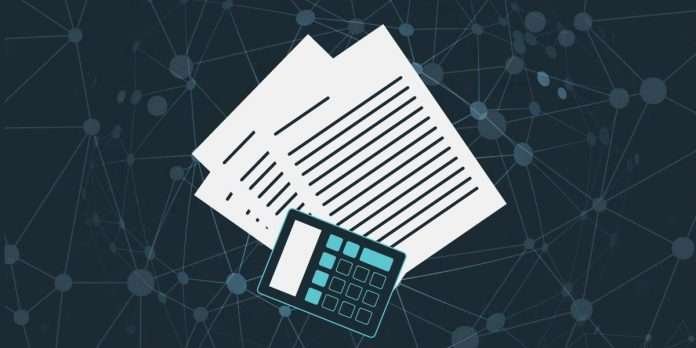
Blockchain has been hailed as one of the most exciting and revolutionary bits of technology that the world has ever seen. Compared to the internet, many believe it could be just as life-changing for humanity. From improving health care to increase the legitimacy of elections, blockchain technology seems to have a never ending and ever expanding lists of uses.
But let consider some blockchain applications that can be adapted by governments and authorities- a sector of society that is notoriously mistrusting of such breakthrough technologies.
The tax sector is just one example where the power of blockchain can be used for good. A notoriously complex, old-fashioned and difficult to fathom industry, using the blockchain will hopefully simplify it and make it more efficient for businesses and individuals across the world.
Table of contents:
- Benefits of blockchain
- Could it change the industry entirely?
- Data traceability
- Transactional taxes
- Fraud and human error
- What’s next?
Benefits of Blockchain
The truth is that we have not even begun to truly understand all of the applications and benefits of blockchain technology.
Back in 2011, the price of a single Bitcoin was $1, and very few people had heard of the technology that underpins it- the blockchain. Fast-forward to 2018 and the price of Bitcoin fluctuates around the $8000 mark, and blockchain technology is being adopted by global governments and international corporations such as IBM, Walmart, Maersk, UPS and even British Airways.
The big interest in blockchain comes from the fact that it can revolutionise a range of industries by offering increased transparency, immutability, lower transaction costs, and a higher level of efficiency for a range of tasks. These benefits are particularly useful in the world of tax and taxation.
When it comes to the blockchain, particularly in the tax sector, the core attributes of blockchain technology have many potential uses.
For example, the level of transparency that blockchain provides, as well as its provenance, and the transparency relating to transactions means that it far surpasses any traditional methods that are currently being utilised.
The blockchain also can create a permissioned network that is only accessible to identified users. Another useful attribute is the fact that the digital ledger cannot be altered or tampered with once data has been entered into it meaning that fraud is much less likely and is also easier to notice.
Last, but not least, the blockchain is always updated in real time. As a new entry is inputted, it is immediately updated for every single node on the network- something that is not possible with more traditional methods.
While no one is saying that blockchain is the absolute cure for every issue in the tax system, it can be applied to various areas to reduce the burden of administration as well as helping to collect tax at a much lower cost. This, in turn, could help to return the tax gap that is worth trillions of euros every year.
Through using blockchain technology, businesses can cut costs and add value to the business, between businesses, between businesses and consumers, and between businesses and government departments.
Could It Change The Industry Completely?
There is no doubt that the state of the current tax system is in dire need of improvement and it is hoped that blockchain technology could be the much-needed catalyst that will transform the industry fundamentally.
This new technology has emerged at a time where many in the world of tax are considering whether the current system, designed for a time where physical goods were bought, sold, and traded, is still fit for purpose in this digital world. The increase of the sharing economy, as well as digital business and previously unseen business models, have led many to believe that the current system is outdated.
Does it still make sense for governments to collect tax in the way they always have done? And in a world that is mainly transaction-based, should the tax system adapt to follow suit?
While no one is claiming to have it all figured out yet and most of these questions need to be answered by tax policy, rather than technology, Blockchain is without a doubt, an enabler. Blockchain technology could and should change the way that tax is collected and the responsibility for collecting income or sales tax could be removed from the tax authorities to the sharing economy instead.
Data Traceability
One of the key benefits of the blockchain is the fact that as soon as data is inputted onto it, it is shared with every other node on the network. Once it has been entered and shared, it cannot be edited, deleted, or tampered with in any way.
It serves as a permanent record in a chain of records that cannot be manipulated in any way. This means that the content of a blockchain network can be relied upon and there is no room for manoeuvre.
Data can be traced right back for the entirety of its history, and one can easily see what actions have been carried out, by whom, and of course, when.
In the world of tax, this sort of permanent ledger is indispensable when it comes to keeping records of transactions, as well as who has paid what and who is due to pay what.
Transactional Taxes
A transactional tax is a tax that is levied on a specific type of financial transaction for a particular purpose. The idea is most commonly used in the financial sector. The tax is not put onto the financial institutions as such, instead it is charged on specific transactions that are considered as a table. A good example is VAT, withholding tax, stamp duties, and insurance premium taxes.
Using the blockchain means that it could help with transfer pricing as well by codifying the judgements that are made when establishing how profits can be attributed to different parts of a business.
It has also been discussed that blockchain could help significantly with the issue of double taxation, something that causes a huge headache for international businesses of all sizes.
Fraud and Human Error
Using the blockchain for processing transactions means that the chances of human error, or fraud taking place, are drastically reduced.
Fraud becomes much easier to detect because it the system provides transparent information about every transaction that has taken place on the network. This could be particularly useful in deciding if VAT has been paid or is due, and it could reduce the occurrence of VAT fraud in the business world.
The use of blockchain could also drive forward a change in behaviour, particularly regarding the risks and consequences involved with non-compliance with the law.
It becomes more likely that an individual will While and this could result in permanent exclusion from the blockchain network.
What’s Next?
While there is still some scepticism over blockchain technology, this can be eradicated through education and exposure to the new technology. It seems that the digitisation of the global tax system is somewhat inevitable and as society is demanding increased personalisation, there will be an increased demand for a more personal approach to taxation.
The younger generation – Millenials and those that have never even used a chequebook, will be leading the way as will SMEs that don’t have to contend with expensive and cumbersome legacy systems.
When it comes to tax authorities and regulators, blockchain will also offer a lot of value as it will provide immutable and accurate information that can be shared. It will also be able to facilitate the earlier collection and oversight of transactional taxes.
One of the problems that blockchain is up against, however, is the fact that so many people are still not a part of the digital era and while lots are pro-technology, there are still millions of people that hand write their receipts and keep their records in plastic carrier bags. This needs to be overcome.
Whilst it is highly unlikely that tax is the number one priority when companies think about blockchain technology, the fact of the matter is that it has substantial potential to reduce transactional costs.
This will also result in a more streamlined, efficient, and effective tax system that would be a massive bonus for every kind of business. Those working in the tax profession need to learn to have less fear of FinTech and to realise that it is a way of solving age-old issues in the financial industry.
While creating a whole new tax system is not realistic, adapting it to blockchain technology is. By starting small and changing at a steady pace, great things can be achieved over the coming years as there is a lot of synergy between what blockchain can offer and what the tax sector needs.
Read more about different ways blockchain will revolutionise the world.



![Bitcoin Buyer Review of Official Website [2022] bitcoin buyer review featured image](https://bitemycoin.com/wp-content/uploads/2022/04/bitcoin-buyer-review-featured-218x150.jpg)
![Bitcoin Digital | Official Website Review [2022] bitcoin digital review featured](https://bitemycoin.com/wp-content/uploads/2022/04/bitcoin-digital-featured-218x150.jpg)



